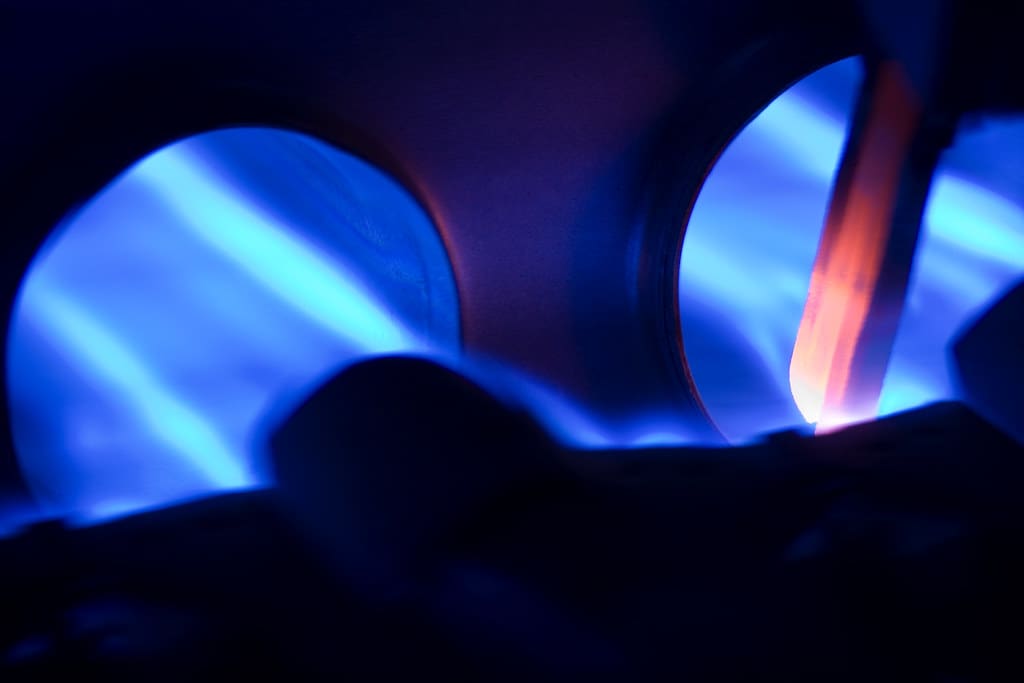¿Qué son las unidades térmicas británicas (BTU) y cómo calcularlas?
Comprender las complejidades de su Climatización El sistema puede parecer abrumador. Sin embargo, hay un concepto crucial: las unidades térmicas británicas (BTU).
Las BTU son una medida de energía térmica, que desempeña un papel vital en la calefacción y la refrigeración. Ayudan a determinar la capacidad de su... Climatización sistema, asegurando que su hogar o negocio permanezca confortable durante todo el año.
Pero ¿qué significa la Unidad Térmica Británica? ¿Y cómo se calculan las BTU para tus necesidades específicas?

Este artículo pretende desmitificar estas preguntas. Profundizaremos en la importancia de las BTU en Sistemas HVAC, explicar cómo calcularlos y analizar su impacto en la eficiencia energética y el ahorro de costos.
Ya sea que sea propietario de una pequeña empresa, un profesional que trabaja desde casa o una madre ocupada que se queda en casa, esta guía lo ayudará a navegar por el mundo de las BTU con facilidad.
Entonces, vamos a sumergirnos y hacer... Climatización Un poco menos complicado.
Comprensión de las BTU en HVAC
La Unidad Térmica Británica es un actor clave en el mundo de ClimatizaciónEs una medida estándar de la energía térmica necesaria para elevar la temperatura de una libra de agua en un grado Fahrenheit.
En Sistemas HVACLos BTU son un indicador crucial de la capacidad de calefacción y refrigeración. Cuanto mayor sea el BTU, mayor será la capacidad de calefacción o refrigeración del sistema.
Al conocer los BTU de su sistema, podrá evaluar mejor su efectividad. Esto es especialmente importante en climas variables como Los Ángeles, donde las temperaturas fluctúan.
Tanto los propietarios de viviendas como los de negocios necesitan comprender las BTU. Este conocimiento garantiza que su... Climatización El sistema satisface sus necesidades específicas.
Comprender los BTU es el primer paso para tomar decisiones informadas sobre la calefacción y la refrigeración de su espacio.
¿Qué significa unidad térmica británica?
Una unidad térmica británica representa la energía necesaria para calentar una libra de agua en un grado Fahrenheit.
Este concepto puede parecer abstracto, pero considérelo una forma de medir la energía. En esencia, se trata de cuantificar el trabajo que realiza su sistema de climatización (HVAC).
En el contexto de la calefacción y la refrigeración, los BTU miden la eficiencia. Cuantos más BTU produzca un aire acondicionado o un horno, más espacio podrá calentar o enfriar eficazmente.
Esta sencilla medida ayuda a garantizar que su entorno se mantenga tal como a usted le gusta, independientemente de las condiciones externas.
La importancia de las BTU en calefacción y refrigeración
Las BTU son esenciales para la planificación y la gestión Sistemas HVACAyudan a identificar la unidad de tamaño adecuado para su espacio, evitando problemas como desperdicio de energía o control insuficiente de la temperatura.
Una cantidad insuficiente de BTU puede resultar en una calefacción o refrigeración inadecuada. Por el contrario, una cantidad excesiva puede generar un consumo excesivo de energía y facturas de servicios públicos más elevadas.
Seleccionar un sistema de climatización (HVAC) con la capacidad de BTU adecuada garantiza comodidad sin costos innecesarios. Este equilibrio es clave, especialmente en hogares y negocios que exigen eficiencia.
En última instancia, las BTU sirven como guía para diseñar sistemas de calefacción eficaces y energéticamente eficientes.Sistema de climatización eficiente Soluciones. Esto garantiza su comodidad en cualquier temporada.
BTU vs. BTUh: ¿Cuál es la diferencia?
Comprender la diferencia entre BTU y BTUh es crucial para cualquier usuario de sistemas de climatización (HVAC). Si bien BTU se refiere a una unidad de energía térmica, BTUh significa Unidades Térmicas Británicas por hora.
Esta distinción cobra importancia al evaluar la potencia o capacidad de un sistema HVAC. Los BTUh indican la cantidad de BTU que un sistema puede suministrar en una hora.
Por lo tanto, al evaluar la capacidad de calefacción o refrigeración, el BTUh proporciona una medida práctica y basada en el tiempo. Esto permite tomar decisiones más precisas sobre el rendimiento del sistema y las necesidades energéticas.
Cómo calcular unidades térmicas británicas
Calcular BTU ayuda a determinar la energía que requiere su sistema de climatización (HVAC). Comprender esto puede maximizar la comodidad y minimizar los costos.
Para calcular las BTU, se debe calcular la energía necesaria para modificar la temperatura. Las BTU miden cuánta energía calienta una libra de agua en un grado Fahrenheit.
Considere las características específicas de su espacio. El tamaño de la habitación, el aislamiento y el clima influyen en las necesidades de BTU.
Un espacio más grande generalmente requiere más BTU. Por otro lado, un buen aislamiento puede reducir el consumo de energía.
Usar una calculadora en línea puede simplificar el proceso. Ingrese las dimensiones de la habitación y deje que la herramienta calcule sus necesidades.
Sin embargo, para obtener asesoramiento personalizado, es recomendable consultar con un profesional de climatización. Este profesional puede ofrecerle información personalizada según las características específicas de su hogar.
Factores que afectan los cálculos de BTU
Varios factores influyen en el cálculo de BTU. El tamaño de la habitación es un factor fundamental. Las habitaciones más grandes, por supuesto, consumen más energía.
El clima es otro elemento clave. Los climas más cálidos requieren más BTU para refrigeración, mientras que las zonas más frías necesitan más unidades de calefacción.
El aislamiento juega un papel vital. Las casas bien aisladas retienen más calor, lo que reduce la demanda energética.
La ocupación también afecta las necesidades de BTU. Un mayor número de personas genera más calor, lo que afecta los requisitos del sistema.
Por último, las características arquitectónicas, como las ventanas, también pueden influir en los cálculos. Las ventanas grandes pueden aumentar la demanda energética debido a la pérdida de calor.
Guía paso a paso para el cálculo de BTU
Para calcular los BTU de una habitación, siga estos sencillos pasos. Le guiarán para determinar las necesidades energéticas de su espacio.
- Mide tu espacio: Determina los metros cuadrados de la habitación multiplicando su largo por su ancho.
- Consideremos el clima: Identifique su zona climática local para una estimación precisa.
- Cuenta para el uso de la sala: Considere cómo se usa la habitación. Las cocinas suelen necesitar más BTU debido a los electrodomésticos.
- Factor de ocupación: Un mayor número de ocupantes genera mayor calor. Ajuste sus necesidades de BTU según corresponda.
- Agregar para Windows: Las ventanas grandes pueden aumentar las necesidades de BTU debido a la posible pérdida de calor.
- Revisión del aislamiento: Evalúe la calidad del aislamiento de su vivienda. Las viviendas bien aisladas suelen consumir menos energía.
- Utilice una calculadora de BTU: Las herramientas en línea pueden agilizar el proceso ingresando los factores mencionados anteriormente.
Recuerde que los cálculos precisos garantizan comodidad y eficiencia. En caso de duda, consulte con un profesional para validar sus estimaciones. Ellos le ofrecen su experiencia y pueden personalizar sus recomendaciones para la configuración de su hogar.
La importancia de los cálculos precisos de BTU
Los cálculos precisos de BTU son cruciales para un rendimiento eficaz de HVAC. Garantizan que los sistemas funcionen eficientemente y satisfagan sus necesidades de confort.
Sobreestimar los BTU puede resultar en un consumo innecesario de energía. Esto incrementará sus facturas de servicios públicos sin mejorar la comodidad.
Subestimar los BTU resulta en un sistema sobrecargado. Podría tener dificultades para calentar o enfriar su hogar eficazmente.
Realizar los cálculos correctamente prolonga la vida útil del sistema y aumenta la eficiencia energética. Es ideal para mantener un ambiente acogedor.
Eficiencia energética y ahorro de costes
Las evaluaciones precisas de BTU se traducen en ahorros de energía sustanciales. Usar los BTU exactos requeridos significa que su sistema no consumirá energía en exceso.
La eficiencia se traduce en facturas de energía más bajas, lo que le deja más dinero. También implica un menor desgaste del sistema de climatización.
El ahorro no se limita solo al dinero. Los sistemas eficientes fomentan la responsabilidad ambiental, utilizando menos recursos y reduciendo los residuos.
Cómo seleccionar el tamaño correcto del sistema HVAC
Elegir el tamaño correcto del sistema comienza con un cálculo preciso de BTU. Una unidad demasiado grande o demasiado pequeña no regulará bien la temperatura interior.
Los sistemas de tamaño insuficiente tienen dificultades para mantener la comodidad. Trabajan más, lo que provoca un desgaste prematuro y un mayor consumo de energía.
Las unidades sobredimensionadas se encienden y apagan con demasiada rapidez. Esto provoca un consumo energético ineficiente y un control de la humedad inadecuado. Un cálculo adecuado ayuda a evitar estos problemas y a garantizar un rendimiento óptimo.
Conceptos erróneos comunes y consejos para propietarios de viviendas
Muchos piensan en grande Sistemas HVAC Siempre funciona mejor. Pero el tamaño debe ajustarse a las necesidades de BTU para lograr verdadera eficiencia y comodidad.
Algunos propietarios creen que todas las habitaciones necesitan la misma cantidad de BTU. Factores como el tamaño de la habitación y las ventanas causan variaciones.
También existe el mito de que el aislamiento no afecta los BTU. Un aislamiento adecuado minimiza el intercambio de calor, lo que reduce la demanda de BTU.
Para optimizar su sistema de climatización, considere realizar evaluaciones profesionales. Los expertos pueden ayudarle a evitar estos malentendidos y a disfrutar de un ambiente hogareño confortable.
Cuándo consultar a un profesional
Calcular BTU puede parecer sencillo, pero existen numerosos factores que pueden complicarlo. Si no está seguro, le recomendamos buscar ayuda.
Los profesionales pueden evaluar con precisión su espacio para dimensionar correctamente su sistema de climatización. Esto garantiza comodidad y eficiencia, ahorrándole tiempo y posibles complicaciones.
Conclusión: Garantizar la comodidad y la eficiencia
Comprender los BTU es clave para mantener su hogar acogedor todo el año. Un sistema bien dimensionado mejora la comodidad y ahorra energía.
Los cálculos precisos garantizan un funcionamiento eficiente y rentable de su sistema de climatización. Tenga en cuenta estos principios básicos para disfrutar de un ambiente interior sereno.
Comuníquese con LC Heating and Air Conditioning para obtener asistencia experta
¿Se siente abrumado con los cálculos de BTU? Nuestro equipo está aquí para ayudarle.
En Calefacción LC y Aire acondicionadoOfrecemos asesoramiento experto adaptado a sus necesidades. Contáctenos para obtener precisión y tranquilidad con su sistema de climatización.
Si tiene curiosidad por aprender más sobre los conceptos de calefacción y refrigeración, quizá le interese explorar algunos temas relacionados. Hablando de unidades térmicas británicas, consulte Unidad Térmica Británica (BTU) Para obtener una descripción detallada de la unidad, visite Calor. Y para una visión más amplia de los sistemas que utilizan BTU a diario, el artículo sobre Calefacción, ventilación y aire acondicionado (HVAC) Ofrece una gran visión de cómo estas tecnologías mantienen los espacios interiores cómodos.


